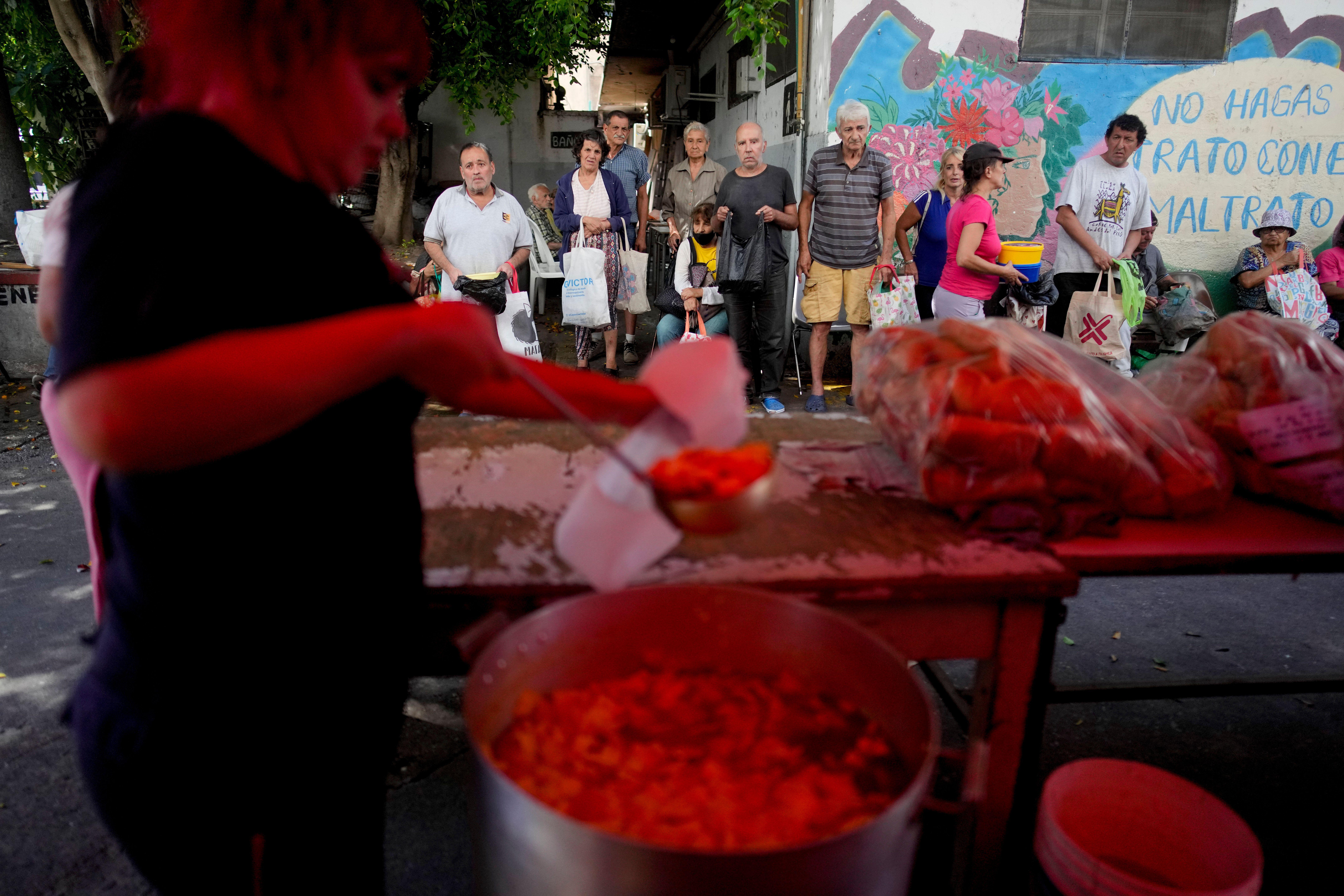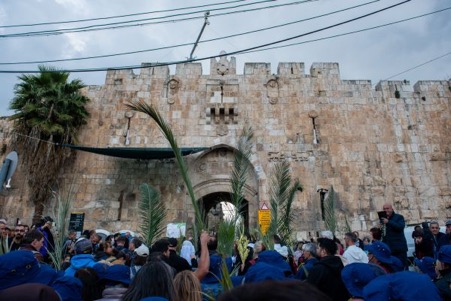The Latin Patriarch of Jerusalem said that “the loneliness of Jesus in Gethsemane…is now shared by all of us”, as he anticipated “a difficult Easter” in the Holy Land.
Cardinal Pierbattista Pizzaballa presided over subdued celebrations in Jerusalem on Palm Sunday with clergy and laity. What is a traditionally festive day, with songs and olive branches commemorating Christ’s entry into the city, this year featured no music and few participants, with almost no tourists or pilgrims.
The celebrations began at the Church of the Holy Sepulchre, where the patriarch blessed the palm and olive branches and led a procession around the tomb, during a reading from Mark’s account of the Passion. At noon, the faithful gathered at the Monastery of the Palms in Bethpage for the procession to the Monastery of St Anne.
Speaking towards the end of the proceedings, Cardinal Pizzaballa said: “We have felt crushed by so much hatred. This war, which is so terrible and seems never-ending, sometimes leads us to fear for the future of our families. Yet today we are here again, even if few in number, without pilgrims and without so many of our brothers and sisters from so many parts of our diocese, who could not join us. It does not discourage us!
“Few or many, it is important to be here, and to shout with strength and faith that we have a point of reference, Jesus Christ. We are not alone, we are not abandoned, and above all, we are not afraid!” He described seeing “something very beautiful today – your Christian unity”.
Cardinal Pizzaballa assured Christians living in Palestinian territories they would receive permits to visit Jerusalem for Holy Week liturgies. “Even if the numbers are smaller, we will have several thousand permits both for Palm Sunday and for Easter,” he said.
Days earlier he described the situation in Gaza, around 50 miles away, as “intolerable”. Speaking to an Italian television station, the patriarch asked that “everyone must do everything possible to put an end to this situation”.
“We have always had many problems of all kinds,” he said, “and even the economic-financial situation has always been very fragile, but there has never been hunger before.”
He said it was “the weakness of the United States [that] creates a great dilemma, because, until now, there has always been someone to put things in order”.
“Now there is no longer anyone to play this role, and we have to do it ourselves. I don't know if, how, or when this will be possible.” He reported that the 1,100 Christians in Gaza “have nowhere to go”.
Cardinal Pizzaballa reported he had never seen so much violence in his 24 years in the Holy Land. “Hatred, resentment, revenge, mistrust...everything together with such intensity,” he said.
On Sunday, he said the Catholic community in Gaza continued “to show the world an incredible testimony of faith”, reporting that “despite the war and its dangers, the Holy Family Parish celebrated Palm Sunday in the most solemn way”.
Just under 600 people are sheltering in the Holy Family Church, the only Catholic church in Gaza, and another 249 are in a Greek Orthodox church. In addition to hunger and strikes from the Israel Defence Forces (IDF), Cardinal Pizzaballa said their main problem was the lack of medicine. “Some are sick and need medicine, but it is very difficult to get it to them.”
“Pope Francis calls quite frequently,” said Pizzaballa. “We are not abandoning them.”
The police of the Hamas government do not protect humanitarian aid convoys, and some convoys have been assaulted by hungry crowds, armed family groups or bombed by the IDF.
On 21 March the Archbishop of Canterbury Justin Welby called for real solutions to the humanitarian crisis in the Gaza Strip.
“Parachuting aid or building temporary harbours is unlikely to meet the urgent and monumental humanitarian needs of Gaza’s starving population,” he said in a social media post. “They are imprecise, inadequate and do not reach those in most need.”
He described the experience of the Al-Ahli hospital, the facility in northern Gaza founded and supported by the Anglican Church for more than 140 years, which had already been heavily damaged in the first weeks of the war.
“Reports from the Anglican run Al-Ahli Hospital in Northern Gaza tell of how US air drops have damaged the hospital’s solar panels and their power capacity,” he reported, adding that “hundreds of desperate people then entered the hospital taking the aid so that the hospital received nothing”.
Archbishop Welby emphasised that “deaths, and the famine-like conditions in Gaza, are not the result of some unexpected natural disaster – they are human-made”.
“Israel’s prosecution of this war has destroyed large parts of the Gaza Strip – decimating infrastructure essential to human survival,” he said. “The scarcity of humanitarian access to and within the Strip continues to prevent aid workers from distributing life-saving supplies. We should not become numb to this injustice.”
Archbishop Welby added: “As I have said before, and I repeat again now: the only effective solution to this catastrophic situation is an immediate ceasefire, the release of all hostages, and sustained humanitarian access for the provision of essential supplies and services to those in need.”
He concluded: “I continue to pray for the Palestinian Christian community in Gaza and the West Bank, for the people of Palestine and Israel, and for justice, peace and security for all the peoples of the Holy Land.”
On Monday, the UN Security Council passed a resolution demanding a ceasefire in Gaza for the rest of Ramadan, after the US dropped its threat to veto.
More than 32,000 Gazans have been reported dead and thousands more missing, with UN agencies are warning that a major famine is imminent in the region. UN secretary-general António Guterres said after Monday's vote that the resolution “must be implemented” and that “failure would be unforgivable”.
Cafod welcomed the ruling as “a step closer to the creating the conditions needed to prevent further loss of life, to ensure the release of all remaining hostages and to address the catastrophic levels of hunger now faced by families in Gaza”.
Elizabeth Funnell, the aid agency’s Middle East programmes representative said action on the resolution would demand constant international pressure. “The UK government must now therefore exert every effort to ensure that this resolution is implemented,” she said.



 Loading ...
Loading ...